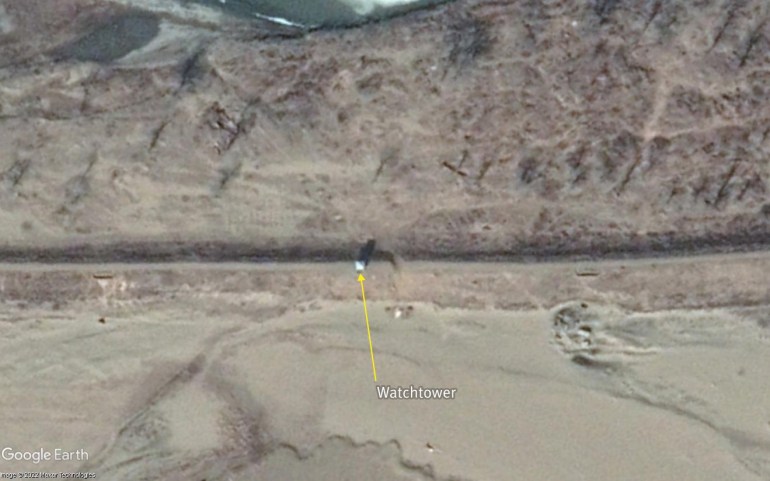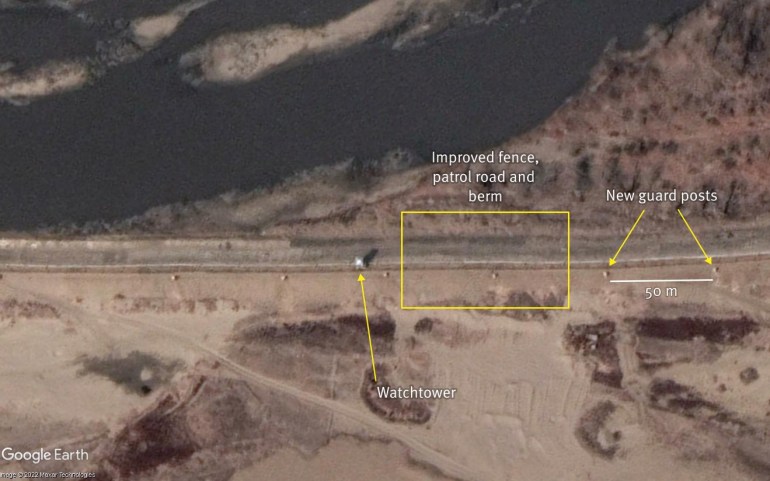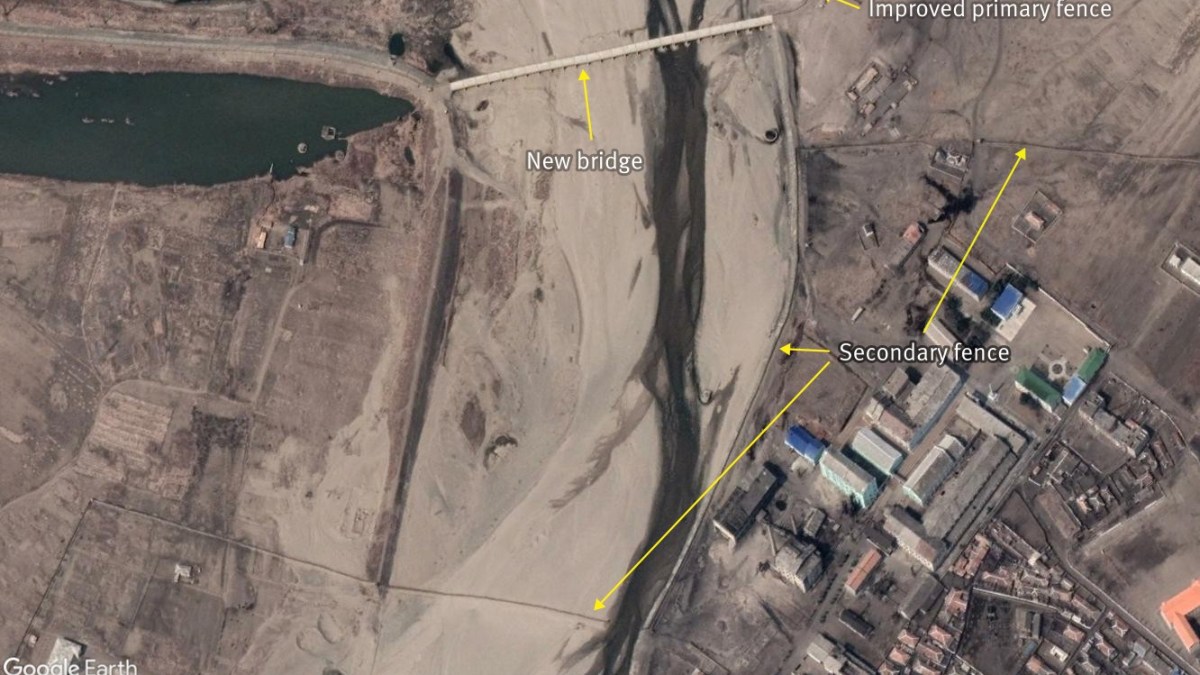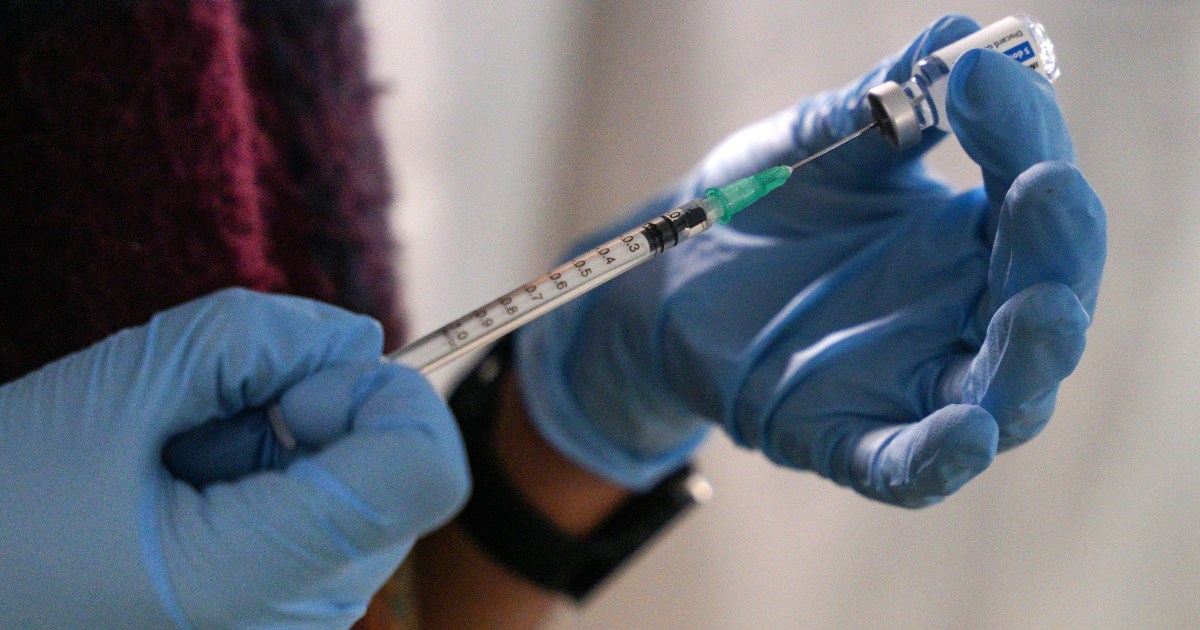North Korea’s COVID controls worsened food crisis, report says | Business and Economy News
Pyongyang has substantially ramped up border security since January 2020, according to satellite images.
North Korea has substantially ramped up border restrictions during the COVID pandemic, worsening severe shortages of food, medicine and other necessities, according to a report from a human rights group.
North Korean authorities have imposed “excessive and unnecessary Covid-19 measures” since January 2020, including upgraded fences, guard posts and patrol roads, an analysis of satellite images by Human Rights Watch (HRW) shows.
The strengthened border measures include the addition of 169 guard posts and nearly 20km (12 miles) of new fencing in the vicinity of the border city of Hoeryung, a popular transit point for smuggling and trade, between November 2020 and April 2022.
HRW said it had spoken to five North Korean defectors involved in smuggling goods in or out of the isolated country who have been unable to carry out their activities since February 2020.
“The North Korean government used purported COVID-19 measures to further repress and endanger the North Korean people,” said Lina Yoon, a senior Korea researcher at HRW.
“The government should redirect its energies to improving access to food, vaccines and medicine, and respecting freedom of movement and other rights.”
Yoon said past experience had shown that relying on state-run distribution of food and essential goods “only entrenches repression and can lead to famine and other catastrophes”.


North Korea, ruled by third-generation leader Kim Jong-un, became the first country to seal its borders in response to COVID-19 in January 2020, banning almost all international travel and severely limiting economic activity with neighbouring China, the source of more than 90 percent of its trade.
The secretive state is among Asia’s poorest countries, with more than 40 percent of the population undernourished and in need of humanitarian assistance, according to the World Food Programme.
In August, Pyongyang declared victory over the virus, after blaming its first official outbreak on neighbouring South Korea.
Authorities claimed only 74 people had died from the virus despite reporting more than 4.7 million infections.
Medical experts have cast doubt on the death rate given the nature of the virus, North Korea’s debilitated healthcare system and lack of vaccines.





Pingback: orange hawaiian mushroom for sale magic boom bars where to buy psilocybin capsules for sale
Pingback: https://www.timesunion.com/marketplace/article/phenq-reviews-17525542.php
Pingback: สมัคร lsm99
Pingback: https://www.rabota66.ru/go?url=https://unionforgenderempowerment.org/
Pingback: kojic acid soap